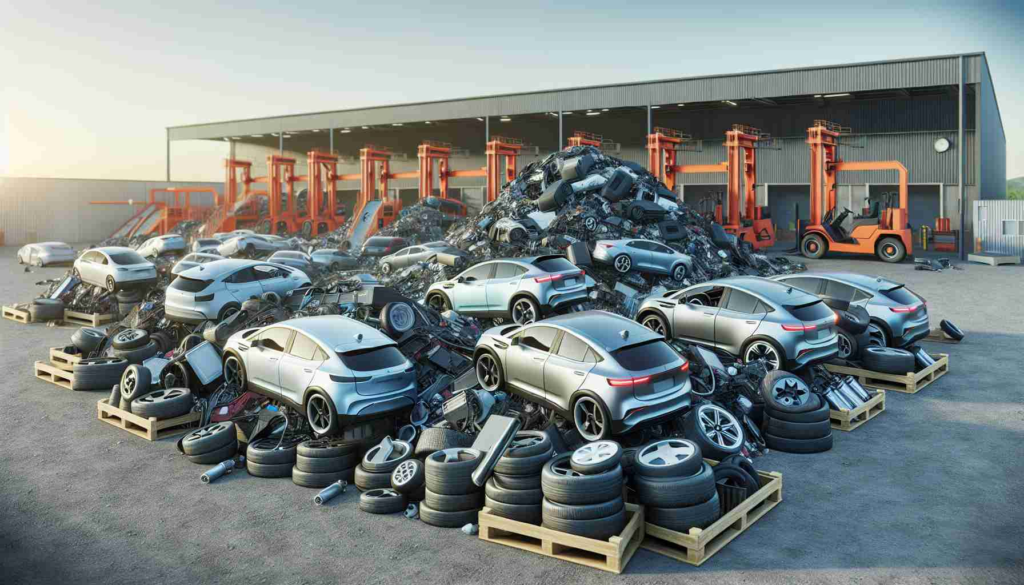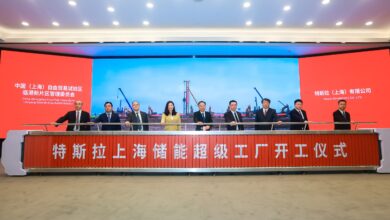Electric Vehicles Face Recycling Boom Due to Repair Challenges


In an intriguing development within the automotive industry, a significant number of electric vehicles (EVs) are reportedly being written off rather than repaired in a certain country. Insurance companies are opting for this route primarily because of a distinct shortage of qualified technicians capable of handling the intricate repair work that EVs often require.
### Summary
A recent study of the electric vehicle market has highlighted a growing trend where insurers are favoring the scrapping of damaged EVs over repairing them. The scarcity of mechanics with the necessary skills to fix electric cars has been identified as the main cause of this issue. This situation not only impacts the sustainability of a market that emphasizes environmental friendliness but also influences the cost-effectiveness of operating and maintaining an EV over its lifetime.
The shortage points to a larger underlying problem in the EV industry – the gap between technological advancement and the availability of specialized labor. As electric cars become increasingly mainstream, the auto industry faces a critical challenge to ramp up the training and development of a new workforce adept in EV technology.
The concerns extend beyond mere inconvenience for car owners; they underline the importance of ecosystem readiness for the adoption of new technologies. This includes adequate training facilities, certification programs for mechanics, and an anticipated growth in the recycling sector to handle the disposal of electric vehicles that are rendered uneconomical to repair. The phenomenon could have wide-reaching implications for the resale value of electric vehicles, insurance premiums, and the pace at which consumers adopt this cleaner technology.
Increasing Scrappage of Electric Vehicles Due to Skills Shortage
Industry Context and Market Forecasts
The electric vehicle (EV) industry is undergoing rapid growth globally, with projections indicating that EV sales could surpass those of traditional internal combustion engine vehicles within the next couple of decades. This optimistic outlook is fueled by governmental policies aiming to reduce carbon emissions, technological advancements, and an increasing consumer shift towards sustainable living. However, this growth comes with challenges, one being the proper maintenance and repair of electric vehicles.
Concerns for the EV Market
The inclination of insurance companies to write off damaged EVs rather than repair them underscores not just a deficit in qualified technicians, but also questions the long-term sustainability of the industry. It can potentially increase costs for consumers due to higher insurance premiums and reduce the second-hand value of EVs, thus affecting the overall adoption rate of these vehicles.
Issues Related to the Lack of Qualified Technicians
The crux of the problem lies in the emerging technology of electric vehicles and the specialized knowledge required to service them safely and effectively. Unlike conventional cars, EVs have high-voltage battery systems, complex electric motors, and unique software interfaces that require specific tools and diagnostic equipment. The shortage of technicians is partially due to the nascent state of the industry and the slower pace of developing vocational training programs to keep up with technological advancements.
Impact on Ecosystem Readiness and Technology Adoption
The readiness of the automotive ecosystem to support the transition to EVs is critical for widespread adoption. This includes not only a robust network of charging stations but also a skilled workforce capable of maintaining the increasing EV fleet. Additionally, the issue raises the importance of planning for the end-of-life of EVs, suggesting a potential growth area in the recycling and disposal sector to manage the environmental footprint effectively.
As the industry looks to solve these challenges, stakeholders are advocating for greater investments in training and research to close the skills gap. Until then, the phenomenon of high scrappage rates may persist, possibly slowing down the EV revolution. To stay updated with trends, developments, and forecasts within the EV industry, you can follow significant industry players and research organizations. Visit the International Energy Agency’s website for global energy insights at International Energy Agency or check the latest on the automotive market at SAE International. These resources can provide valuable information on the ongoing efforts to align workforce development with the evolving technological landscape of the automotive industry.

Igor Nowacki is a fictional author known for his imaginative insights into futuristic technology and speculative science. His writings often explore the boundaries of reality, blending fact with fantasy to envision groundbreaking inventions. Nowacki’s work is celebrated for its creativity and ability to inspire readers to think beyond the limits of current technology, imagining a world where the impossible becomes possible. His articles are a blend of science fiction and visionary tech predictions.



